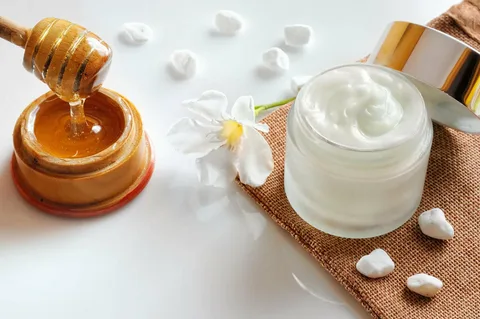When your skin is sensitive, even the most popular beauty products can cause breakouts, redness, or irritation. Moisturizers are essential for maintaining hydration and skin barrier health but only if they’re formulated with gentle, non-irritating ingredients. Choosing the right one means knowing what to avoid and what to look for.
What Makes Skin Sensitive?
Sensitive skin isn’t a clinical condition, but a common complaint that affects many people. It’s often marked by inflammation, dryness, or reactivity to weather, stress, or certain skincare ingredients. For some, sensitivity is genetic; for others, it results from overuse of harsh products or environmental damage.
Understanding your skin’s triggers is the first step. If you find that products regularly cause tingling, redness, or itchiness, your skin may be reactive. In these cases, gentle formulations like medicine mama bee magic, which contains organic and natural ingredients, can offer calming relief without the irritation.
Ingredients to Avoid
Not all moisturizers are created with sensitive skin in mind. Many products include ingredients that can strip the skin’s natural barrier or lead to inflammation. Common culprits include:
- Fragrance and artificial dyes: These are among the top causes of allergic reactions in skincare.
- Alcohols: Especially denatured alcohol, which can dry and disrupt the skin barrier.
- Preservatives like parabens and formaldehyde releasers: These are added to extend shelf life but can be irritating.
- Essential oils in high concentrations: Though natural, they can be too potent for sensitive skin.
Steering clear of these ingredients will reduce the chances of flare-ups or discomfort.
Ingredients to Look For
Safe moisturizers for sensitive skin typically contain ingredients that are soothing, hydrating, and protective. Here are a few of the best:
- Aloe vera: Known for its calming and hydrating properties.
- Colloidal oatmeal: Excellent for soothing inflamed or itchy skin.
- Hyaluronic acid: A gentle hydrator that attracts moisture to the skin.
- Ceramides: Help rebuild and maintain the skin barrier.
- Squalane: A non-comedogenic oil that hydrates without clogging pores.
These ingredients help to nourish the skin without triggering sensitivity or breakouts.
How to Read Product Labels
Marketing terms can be misleading. Just because a product says “natural” or “for sensitive skin” doesn’t mean it’s safe for you. Learning to read ingredient labels is essential.
Look for terms like:
- Non-comedogenic: Won’t clog pores.
- Hypoallergenic: Formulated to minimize allergic reactions.
- Dermatologist-tested: Often means it has gone through sensitivity testing.
- Fragrance-free: Note that “unscented” doesn’t mean fragrance-free; it may still contain masking fragrances.
Third-party certifications such as EWG Verified, USDA Organic, or Leaping Bunny can also guide you toward safer choices.
Don’t Skip Patch Testing
Even when a product looks perfect on paper, your skin may disagree. Patch testing allows you to test a small amount of product on a discreet area (like the inner arm or behind the ear) to ensure you don’t react poorly.
Apply a small amount once a day for 2–3 days and observe any signs of irritation. If your skin reacts, avoid full-face application.
Creams, Lotions, or Balms?
Different moisturizer formats offer different benefits:
- Lotions are lightweight and best for daytime use or oily skin types.
- Creams are richer and more suitable for normal to dry skin.
- Balms offer the deepest nourishment, great for extremely dry or sensitive skin.
In fact, a soothing balm might be the most effective option for people who deal with chronic dryness or frequent irritation. A natural product like medicine mama bee magic is a great example of a balm that combines gentle, organic ingredients with deep hydration ideal for sensitive skin.
Top Moisturizer Recommendations
While individual needs vary, some moisturizers are consistently recommended by dermatologists and skincare experts for sensitive skin:
- Vanicream Moisturizing Cream – Free from dyes, fragrance, and formaldehyde.
- La Roche-Posay Toleriane Double Repair – Contains ceramides and niacinamide.
- Avene Skin Recovery Cream – Minimalist formula for extreme sensitivity.
- CeraVe Moisturizing Cream – Budget-friendly, ceramide-rich, and fragrance-free.
- Medicine Mama Bee Magic – Rich in natural oils and beeswax, ideal for nourishing and healing dry, reactive skin.
Conclusion
Choosing the right moisturizer is one of the most important steps you can take for your sensitive skin. By learning what ingredients to avoid, which ones to seek out, and how to patch test new products, you empower yourself to make choices that lead to healthier, calmer skin. Trust your skin, read the labels, and don’t settle for discomfort there are safe, effective options out there just for you.

